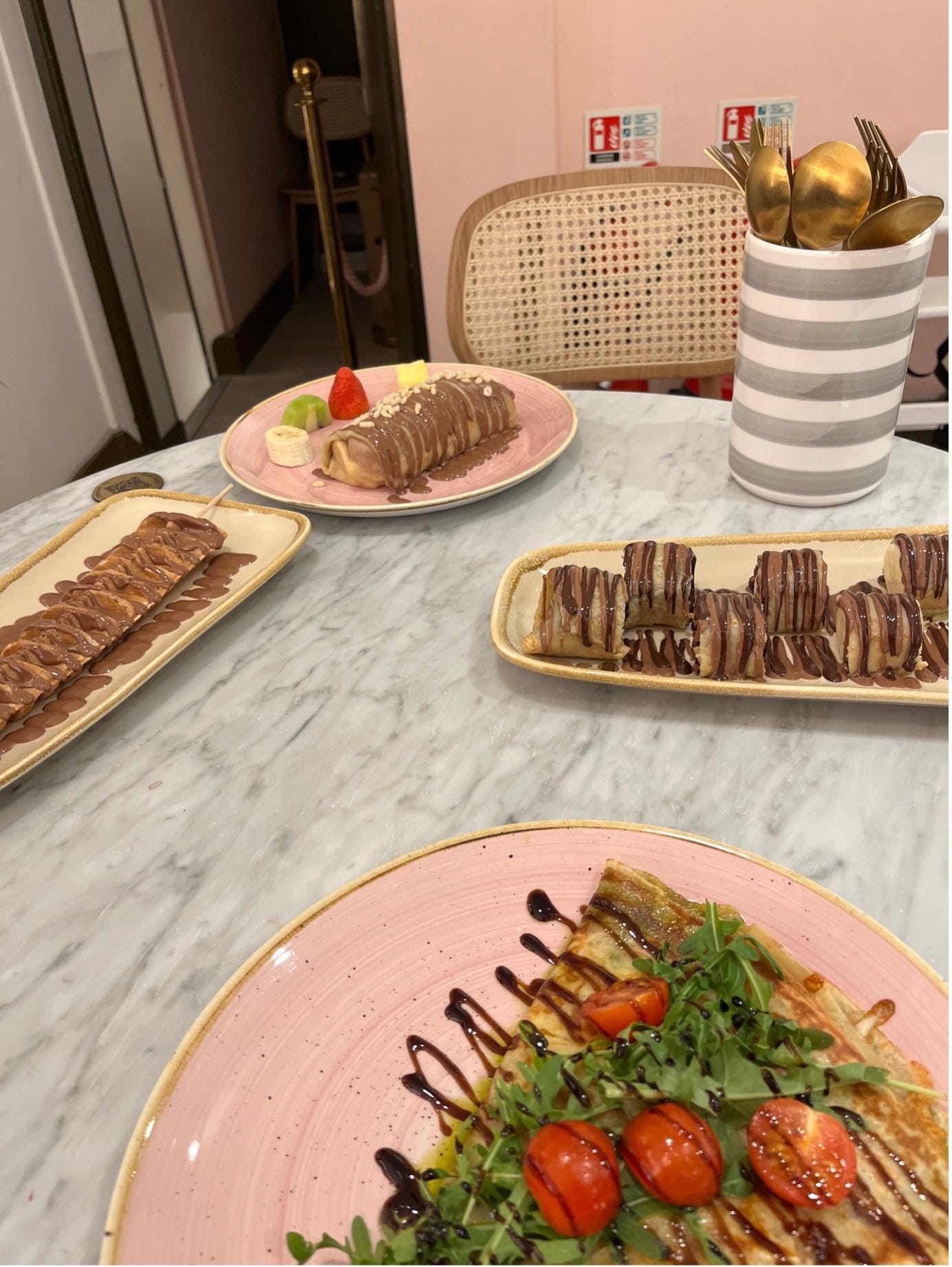A crowd of eager onlookers encircle a suited man like they are watching a schoolyard fight. He is giving a port-fuelled passionate advocation for the invasion of France. This is Port and Policy.
Every Sunday of term the Oxford University Conservative Association (OUCA) holds their famous Port and Policy event. Since 1994 it has attracted the most conservative—and some not-so-conservative—minded students from the University to attend. The alumni of OUCA include past Prime Ministers such as Margaret Thatcher, David Cameron, and Theresa May, and high-profile MPs like Jacob Rees-Mogg and the Chancellor of the Exchequer, Jeremy Hunt.
On Facebook OUCA promises “a night of vigorous discussion and plenty of port to go round”. On the first Sunday of Trinity term they hosted a specially themed Port and Policy to mark the eve of Saint George’s Day—suitably patriotic. They had a first motion to match that spirit, “This house would slay the dragon”. Additionally, they advertised “This house would cross the picket lines” and a secret third motion to be revealed on the night.
The venue is St Giles’ Church on Woodstock Road. Members of the OUCA committee give assurances that they are usually able to procure the Oxford Union and that this was simply a temporary setting. It certainly did not give the impression of the home of Oxford’s nearly one-hundred-year-old conservative association. It was more like a tacky parish hall with board games on display on the shelves. It was no bigger than my tutor’s office.
Arriving slightly after the posted start time of 8:30pm, we are immediately greeted by a very keen treasurer. He is excited to tell us we are paying the first entry fees (£8) under his reign. At this point, it is clear we are the only people here besides the obligated OUCA committee members. It is also clear that I am underdressed compared to the rest of the attendees who have stuck to the lounge suit dress code in a stricter sense. But no paying customer is turned away from OUCA when they have cash in hand.
They are busy folding up tables, clearing the hall, and stocking a makeshift bar with port. At the front of the church hangs a ten-foot Union Jack and a five-foot Saint George’s Cross. In front of them stands a small table with an empty bottle of port and cutting board.
We stand around in groups until a bellowing voice, the voice of a character we would later learn to be the political officer, sounds out: “get some alcohol!” The bar was open.
OUCA offers three options for port: fine white, tawny, and ruby. We found none to be particularly appealing. Further research priced each bottle at £5 a pop.
Eventually the church hall slowly fills up, and around 80 people end up being in attendance. Shortly after 9pm the proceedings begin. The political officer grabs our attention by using the very sturdy, empty bottle of port as a makeshift gavel and smashing it against the chopping board.
With no microphones in place, Port and Policy relies on the strength of the speaker’s ability to shout to be heard. About half of the people speaking possess this ability, the rest get lost in the chatter between onlookers and the disinterested port enthusiasts.
First are some announcements. These cover the policy of no photos being taken as well as the news of a party to be held that week. The theme—Thatcher’s Golden Years. They also announce the policy on heckling. It is very much encouraged.
For any “good conservative Thatcherites” the crowd is to shout out “sound!”, as opposed to the boos that serve as the response to a “commie Blairite”. If any committee member speaks it is good practice for the crowd to shout “Resign!”.
The first debate begins: Would this house slay the dragon? The political officer bangs his gavel and calls for anyone in the crowd to speak in proposition.
The first speaker gives his interpretation of the dragon and why it should be slain. “The dragon is the Chinese Communist Party – Burn it to the ground!”. He is met with cheers of “sound!”. When he finishes, the political officer pounds his gavel again and then calls for a speaker in the crowd for the opposition. This process repeats itself until the debate finishes.
Most speeches are no longer than a few sentences, a whole debate seemed to average about half an hour. A key difference between the debates at Port and Policy and, say, those at the Oxford Union, is that no one takes the debate at Port and Policy seriously. Everyone who steps up to speak is, by and large, doing it for a laugh.
A speaker in opposition to the motion proclaims “We should banish the snakes, not slay the dragon – accept Saint Patrick, not Saint George”. He is immediately followed by a speech in proposition, “we are Protestants today” he cries out. “Slay the Antichrist!” Port and Policy debates don’t shy away from current political events. It is suggested that the dragon could represent “a useless civil service that can’t be told to do any work” in solidarity with Dominic Raab.
There were proposals to not slay the dragon, but simply fox hunt the dragon. Or not slay the dragon, but simply slay. However, the most convincing argument seemed to be that the house should not slay the dragon, as what is a dragon if not a Tory? “It just sits on a hoarded pile of wealth”. Nonetheless, the ‘ayes’ took the motion decisively: this house would slay the dragon.
The debate that followed was titled “This house would cross the picket line”. There was now noticeably less interest from the crowd as the chatter grew and the queue for port lengthened. Nearly all speakers were inaudible so we resorted to mingling among the attendees. Most were regulars at Port and Policy. “What else would you do with £8 on a Sunday?”
Indeed, a few were more liberal-minded, who boasted they only came to laugh at and, when they went up to speak, rile up the tories. It was all in the spirit of good fun and much less serious, they told us, than the ‘Beer and Bickering’ at Labour Club. Fittingly, a commotion of ‘boos’ erupted from the debating circle as another speaker exclaimed proudly, “the best thing Margaret Thatcher ever did was die”.
The second debate ended with another victory for the ‘ayes’: unsurprisingly, this house would cross the picket line.
Finally, it was time for the long-awaited secret third motion to be revealed. It didn’t disappoint. “This house would invade France”, the political officer roared. This was the type of absurd motion that recaptured the full crowd’s attention. It set off the starting gun for a competition for who could make the most outrageous statement and get the biggest roar from the spectators. What proceeded was an onslaught of smears on the French nation advising invasion.
“They smell and are stupid”. “We’d have a good time doing it.” “F*ck the froggy b*stards.” “We must cross the Channel for the croissant. Seize the croissant!” “This house would invade France because this house is a gamer.” One rallying cry played into the gender makeup of the observers. “We will dominate France, like you would like to be dominated by a woman. Many of you have never seen a woman in the flesh!”
There was concern that the motion did not go far enough. “As has been seen, the Channel is too easy to cross. It should be made wider. Destroy France!” A small contingent maintained throughout that France did not actually exist. “France is a lie propagated by Big Cheese.”
The main stumbling block for OUCA was that a sizable proportion had their hearts set on the restoration of the United Kingdom of Great Britain and Ireland. “If we are going to invade a neighbouring republic, let it be the Irish people.”
In the end, the ‘ayes’ won for a third time. This house would invade France.
With the final debate concluded, at almost precisely 11pm, the OUCA committee congregates to the front of the hall and belt out ‘God Save the King’. With that, everyone heads to Spoons to finish the night.
The main feature of Port and Policy is students LARPing as ultra-conservatives for a laugh. Their outrageous declarations always lapped up by the crowd. Nothing is said in seriousness. But as seen in the strong representation of OUCA alumni in UK governments past and present, these people are likely to go on and lead the country in some capacity in the future.
It is a stark realisation that the speeches decried at Port and Policy will inevitably echo into the behind-closed-doors discussions in Westminster offices.









